In the ever-expanding landscape of cloud providers, it can be overwhelming to determine which one is the perfect match for your needs. However, when it comes to finding the right fit, Azure stands out among the crowd. Azure provides a comprehensive and versatile range of services, offering scalability, security, and seamless integration with existing Microsoft products. This article explores why Azure is a top contender in the cloud provider market and how it stacks up against other players in the industry, helping you make an informed decision for your business.
Azure vs. Other Cloud Providers: Finding the Right Fit
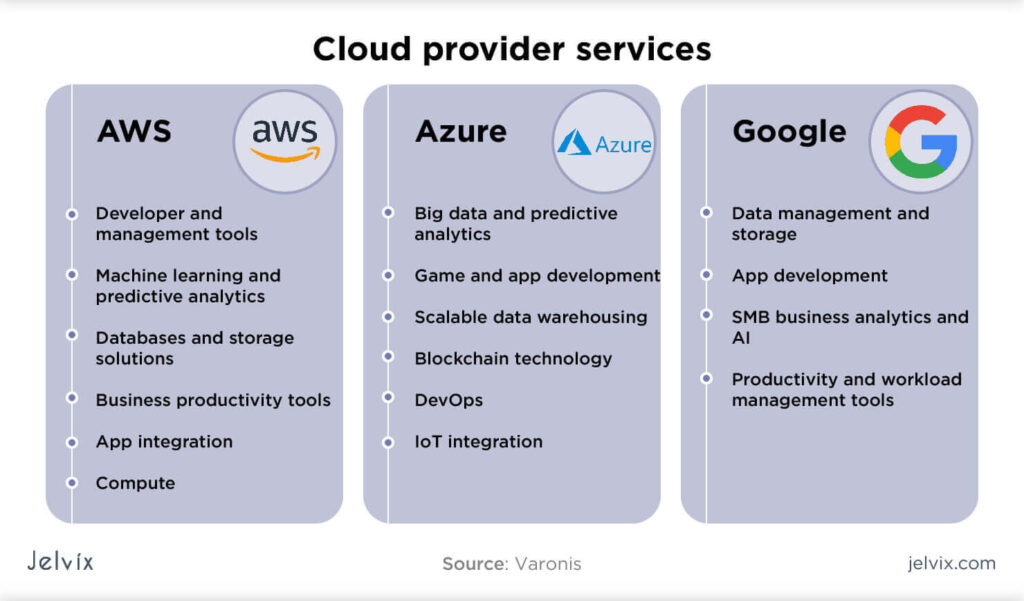
Understanding Cloud Computing
Cloud computing has revolutionized the way businesses operate by providing on-demand access to a wide range of computing resources, such as servers, storage, databases, software, and networking, over the internet. This eliminates the need for businesses to manage their own infrastructure and allows them to focus on their core operations. Cloud computing offers several benefits, including cost savings, scalability, flexibility, and increased efficiency.
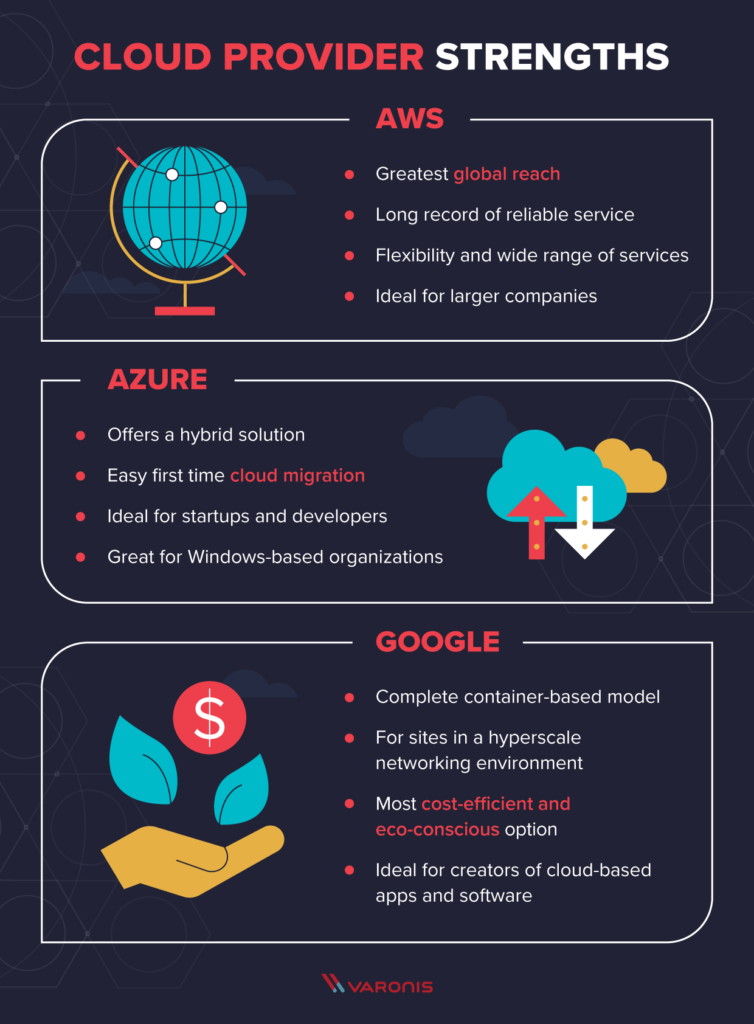
Different Types of Cloud Service Models
When it comes to cloud computing, there are three main service models: Infrastructure as a Service (IaaS), Platform as a Service (PaaS), and Software as a Service (SaaS).
-
Infrastructure as a Service (IaaS): In an IaaS model, the cloud provider offers virtualized computing resources, such as virtual machines, storage, and networks. Customers have control over the operating systems, applications, and data hosted on these resources. Azure is one of the leading providers of IaaS, offering a wide range of virtual machine sizes and configurations to cater to various workloads.
-
Platform as a Service (PaaS): PaaS provides a complete development and deployment environment in the cloud. Customers can focus on building and deploying their applications without worrying about managing the underlying infrastructure. Azure offers a robust PaaS offering, allowing developers to build, deploy, and scale applications without the need to manage servers or infrastructure.
-
Software as a Service (SaaS): SaaS allows users to access software applications over the internet on a subscription basis. The software is hosted in the cloud and typically accessed through a web browser. Azure provides several SaaS applications, such as Office 365 and Dynamics 365, which are widely used by businesses for productivity and collaboration purposes.
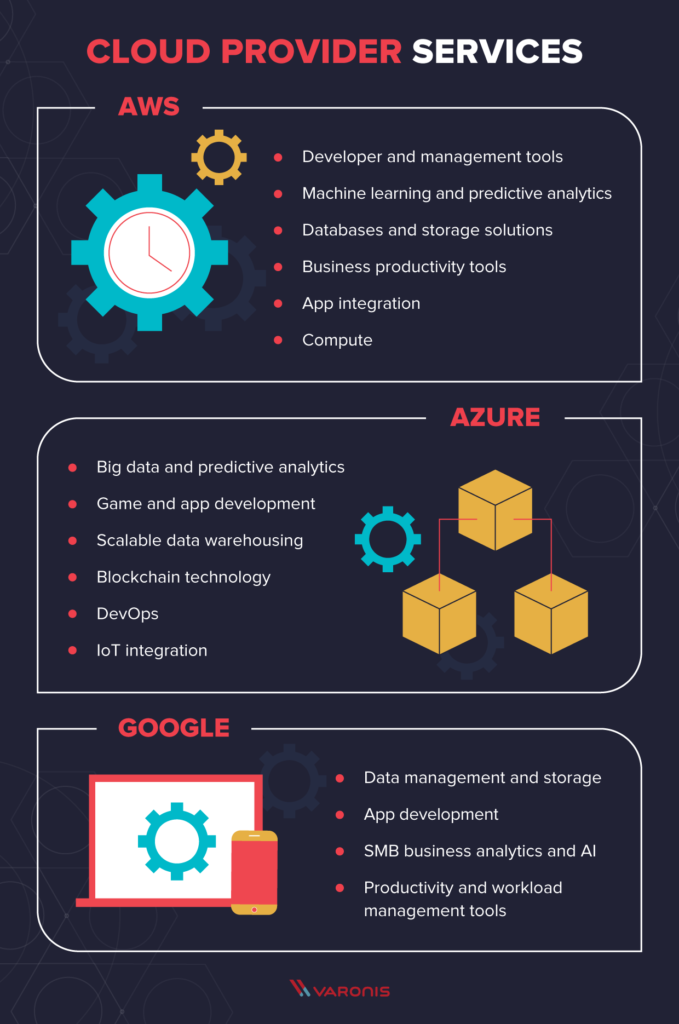
Comparing Azure and Other Cloud Providers
When it comes to choosing a cloud provider, Azure stands out among its competitors. However, it’s important to consider the specific requirements and needs of your business to ensure the right fit. Let’s compare Azure with other major cloud providers:
-
Amazon Web Services (AWS): AWS is the leading cloud provider with a wide range of services and a large customer base. It offers similar cloud service models as Azure and has a robust ecosystem of tools and services. However, Azure has gained significant traction in recent years and provides seamless integration with Microsoft products and services, making it a preferred choice for businesses heavily invested in the Microsoft ecosystem.
-
Google Cloud Platform (GCP): GCP offers a comprehensive set of cloud services, including compute, storage, databases, and machine learning. It has a strong emphasis on data analytics and artificial intelligence capabilities. While GCP has made significant progress, Azure has an edge when it comes to enterprise-grade offerings and a proven track record of serving large-scale businesses.
-
IBM Cloud: IBM Cloud focuses on providing infrastructure and platform services with a strong emphasis on security and compliance. It offers a range of cloud solutions for different industries, such as healthcare, finance, and retail. However, Azure has a broader range of offerings and a larger global presence, making it a more appealing option for businesses looking for scalability and reach.
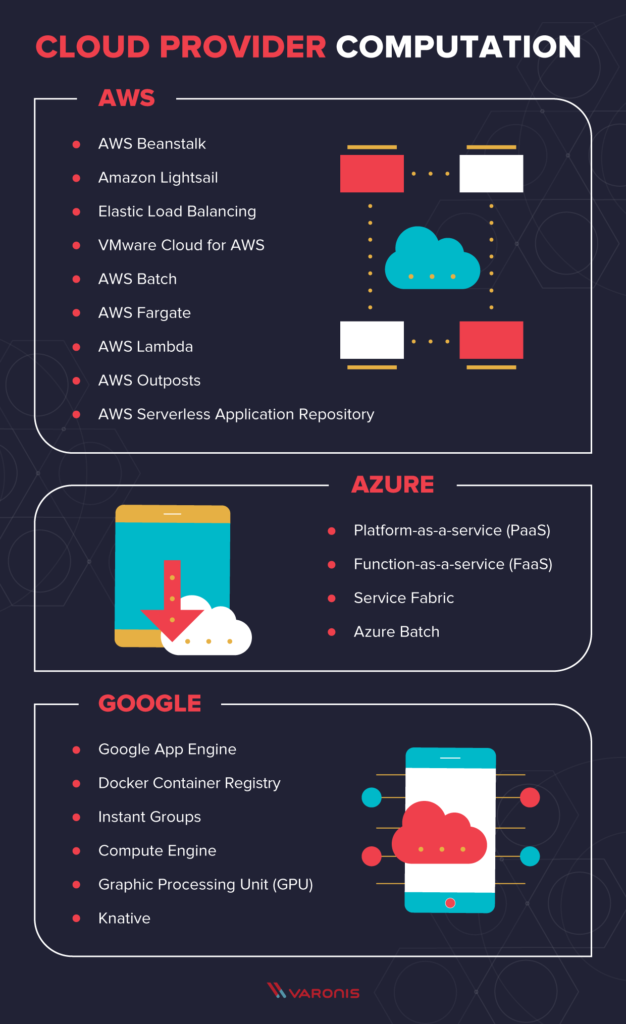
Key Considerations When Choosing a Cloud Provider
When evaluating cloud providers, there are several key considerations to keep in mind to ensure the right fit for your business:
-
Cost Considerations: Pricing models differ among cloud providers, and it’s important to evaluate them based on your specific workload and usage patterns. Azure offers competitive pricing and provides tools to estimate and optimize costs. Additionally, Azure’s Azure Hybrid Benefit and Reserved Instances can offer significant cost savings for businesses with existing Microsoft software licenses.
-
Scalability and Performance: The ability to scale resources up and down based on demand is a crucial factor for businesses. Azure provides robust scalability options, allowing businesses to easily increase or decrease resources as needed. Azure also offers a variety of performance options, including high-performance computing and GPU-based virtual machines for resource-intensive workloads.
-
Availability and Reliability: Downtime can have a significant impact on businesses, so it’s important to choose a cloud provider with high availability and reliability. Azure boasts a global network of data centers and offers a strong service level agreement (SLA) for uptime. Additionally, Azure’s built-in redundancy and disaster recovery options ensure business continuity in the event of an outage.
-
Security and Compliance: Security is a top concern when it comes to cloud computing. Azure has made significant investments in building a secure cloud platform and offers a wide range of security controls and compliance certifications. Azure’s Security Center provides advanced threat detection and analysis, helping businesses stay protected against evolving cyber threats.
-
Integration and Interoperability: Businesses often have existing systems and applications that need to integrate with the cloud. Azure provides seamless integration with on-premises infrastructure, as well as a wide range of connectors and APIs for integrating with other systems and services. Azure also offers hybrid cloud capabilities, allowing businesses to easily extend their existing infrastructure to the cloud.
-
Support and Documentation: Having access to reliable support and comprehensive documentation is essential when utilizing cloud services. Azure provides robust support options, including 24/7 technical support and a vast knowledge base. Azure’s documentation is extensive and well-documented, making it easier for businesses to get started and troubleshoot issues.
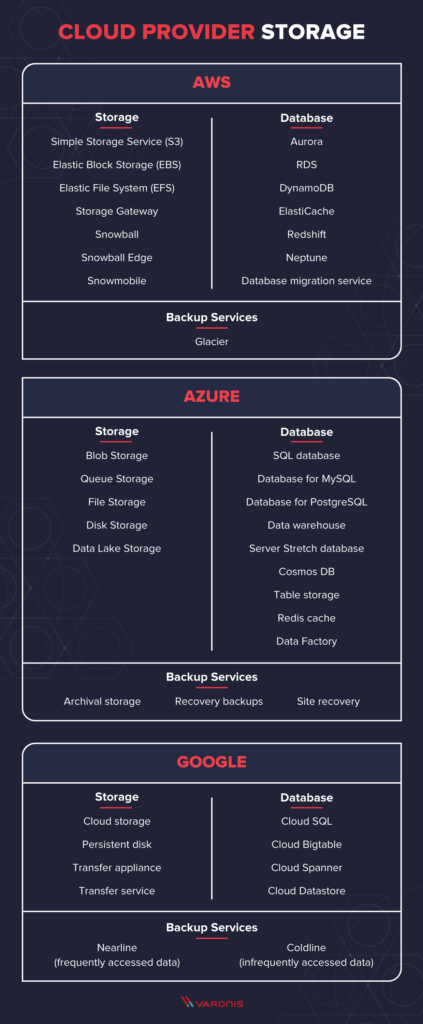
Conclusion
Choosing the right cloud provider is a critical decision for businesses as it impacts their ability to leverage the full potential of cloud computing. Azure offers a strong value proposition with its wide range of services, enterprise-grade offerings, and seamless integration with Microsoft products. However, it’s important to carefully evaluate the specific needs and requirements of your business to find the best fit. By considering factors such as cost, scalability, availability, security, integration, and support, you can make an informed decision and harness the power of the cloud to drive your business forward.